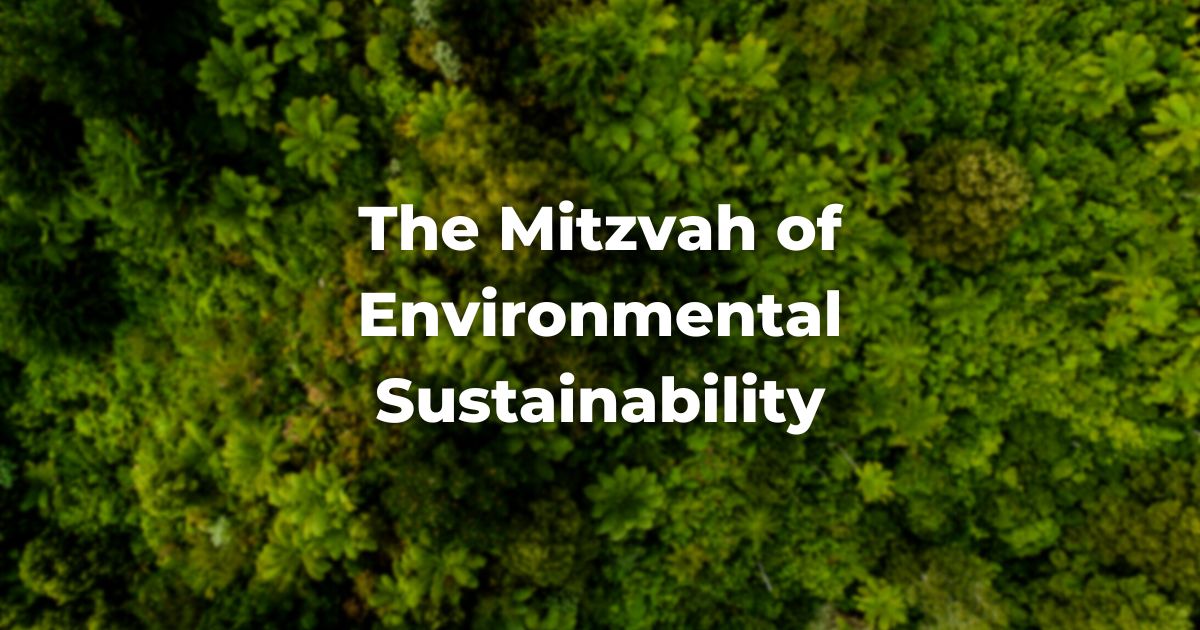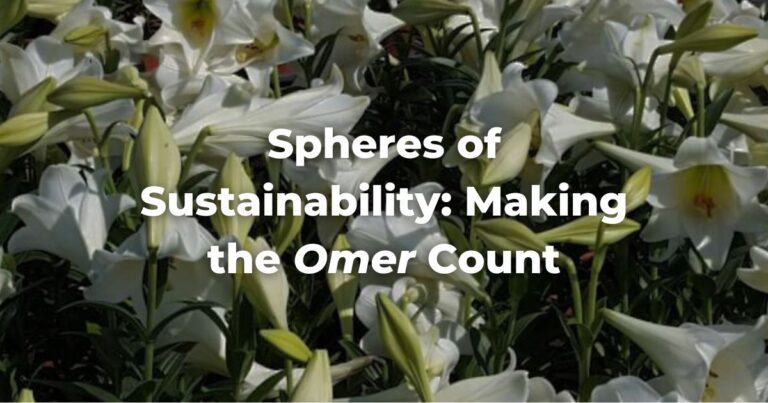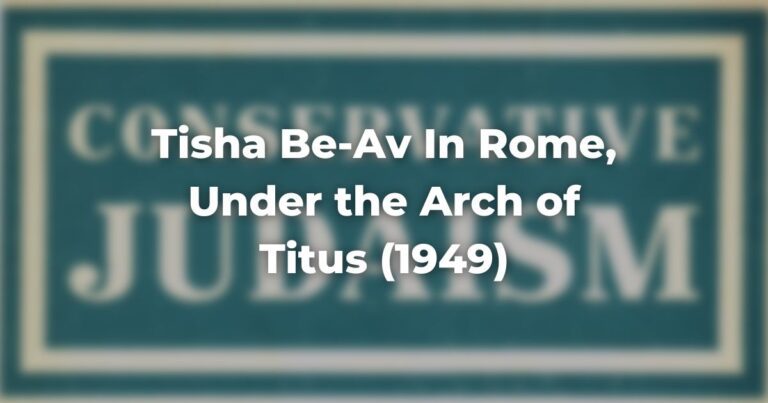Yishuv Ha’olam, the mitzvah of a sustainable world.
What does Judaism say about sustainability?
What texts and teachings should guide our relation to the physical world? Is there a foundational Jewish law that encompasses a broad environmental ethic that would guide our engagement with the world and if so, what is it?
Despite the increasing urgency motivating these questions over the past few decades, and despite the impressive activism and writings of Jews committed to promoting climate and environmental stability, no comprehensive, over-arching mitzvah of sustainability had been articulated.
There are mitzvot that speak about particular aspects of environmental behavior such as do not waste (bal tashkhit), let farmland lie fallow every seven years (shemittah), share the produce of the corners of your field with the poor (pe’ah).
Yet, where was the comprehensive guidance we needed that could guide all our actions regarding the physical world?
That was the question my husband, Rabbi Avram Reisner, and I, addressed in a paper we wrote for the Conservative Movement’s Committee on Jewish Law and Standards. That paper, and its conclusion identifying and explaining such a comprehensive mitzvah, was unanimously adopted in December 2019. That mitzvah is called yishuv ha’olam, the call to preserve and maintain a sustainable world.
This mitzvah was powerfully articulated in Sefer Hahinukh, the 13th century compilation of the 613 Commandments arranged in order of appearance in the TorahRefers to the first five books of the Hebrew Bible, the Tanakh, also called the Five Books of Moses, Pentateuch or the Hebrew equivalent, Humash. This is also called the Written Torah. The term may also refer to teachings that expound on Jewish tradition. Read more. The author there explains that yishuv ha’olam is not just the first of many mitzvot in the Torah (based as it is on Genesis 1:28).
It is also, he writes, the foundational mitzvah that underpins all other mitzvot.
We should not think that “Be fruitful and multiply” is simply about having children, he tells us.
Rather the verse comes to teach us, up front, in the very beginning, that the fullness of creation in all its grandeur is what God desired and we are tasked with helping it be so. “The world is designed to be inhabited,” he explains, “as its says (Isaiah 45:18): ‘God did not create the world to be chaos; God created it for habitation.’ This is a premier mitzvah by which all other mitzvot in the world stand.”
The very purpose of creation was to establish and maintain a vibrant, regenerative world. And it is up to us to help it do that.
So too in the 15th century, Don Isaac Abarbanel explains that yishuv ha’olam is a fundamental mitzvah. And he begins to operationalize it for us, offering a way for us to understand how we are to live out that mitzvah.
We learn it, he writes, from commandment that forbids us to kill the mother bird along with her chick, and the command not to destroy fruit trees. “The Torah intended by [these mitzvot] … that existence should continue to exist. The Holy One commanded us not to destroy that which gives birth or produces fruit.”
That is, we may consume the treasures of the earth as long as in doing we are not destroying the sources of life’s capacity for regeneration.
As the 20th century Jewish philosopher Hans Jonas put it, we must live our lives so that all our actions are compatible with “the pursuit of the permanence of life.”
This CJLS paper, teshuvah, in Hebrew, meaning a legal opinion, calls all Masorti/Conservative entities to embrace the ethic of sustainability.
We are to do so in the ways we consume energy and food, manage our waste and our lands, teach our children and congregants.
In particular, the paper calls for each Masorti entity to establish the position of “chief sustainability officer,” that is, a position in upper management or on the board that has the responsibility for promoting sustainable practices across the institution.
The paper recognizes the adage that if “everybody” owns an issue, no one really owns it. So creating a leadership position that holds the sustainability portfolio and is responsible for reporting regularly to top leadership and the board is a powerful step to ensuring that sustainable practices, and a sustainability ethic, become part of the fabric of each institution.
(See more: Read the full teshuvah here, Ma’asei Yadai L’hitpa-er: On the Mitzvah of Sustainability)
Author
-

Rabbi Nina Beth Cardin is the Chair of the Sustainability Committee of the Social Justice Commission of the Masorti Movement and the co-author (with her husband, Rabbi Avram Israel Reisner) of the Conservative Movement's teshuvah on sustainability. She has worked in the field of environmental advocacy for over twenty years, most recently promoting environmental human rights and intergenerational environmental equity for all.
View all posts






